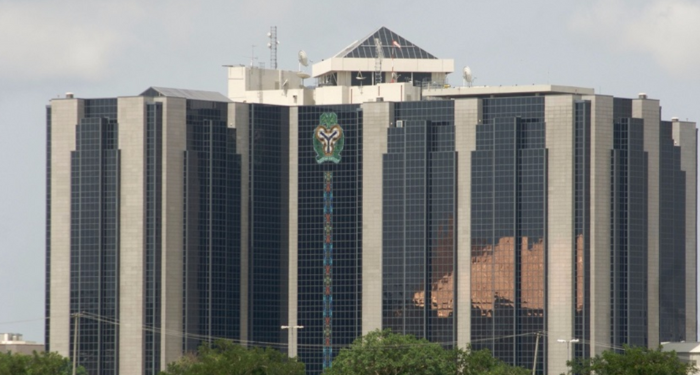Some financial experts have expressed excitement that the Central Bank of Nigeria (CBN) capital base increment for commercial banks will inject a renewed sense of vigor into the activities of market participants.
In an exclusive interview with Nairametrics, these experts highlighted the potential benefit of CBN’s new capital raise to market participants such as Lawyers, Accountants, Stockbrokers, Investment Banks, and Regulators.
They noted that the recapitalization will lead to a general shake-up in the economy which would ginger activities of all market operators and also bring back foreign investors.
Increase in capital raise
Nairametirics reported that the CBN’s Acting Director of Corporate Communications, Mrs. Hakama Sidi Ali, confirmed the policy shift in Abuja, further detailing that national authorization commercial banks need to meet a N200 billion threshold, while those with regional authorization are expected to achieve a N50 billion capital floor.
- In a bid to tighten the financial fabric, the CBN has not overlooked merchant banks, which are now subject to a N50 billion minimum capital requirement.
- Furthermore, non-interest banks with national and regional authorizations will need to bolster their capital to N20 billion and N10 billion respectively.
The CBN also emphasized that all banks are required to meet the minimum capital requirement within 24 months commencing from April 1, 2024, and terminating on March 31, 2026
What market experts are saying:
The Vice Chairman of the Board at Highcap Securities Limited, Mr. David Adonri reacting to the development in an exclusive interview with Nairametrics said that for the primary regulators – the CBN, the Nigeria Deposit Insurance Corporation (NDIC), and the Securities and Exchange Commission (SEC) – the prospect of a well-capitalized banking industry was akin to a sigh of relief.
He noted that with banks fortified by increased capital reserves, these regulatory bodies could rest assured, knowing that the financial institutions they oversaw were better equipped to weather economic storms.
- “Stability and resilience became the watchwords of the day, promising a more secure financial landscape for the nation,” he said.
He noted that market operators, including solicitors, accountants, stockbrokers, and investment banks, stand poised on the brink of opportunity.
- “The recapitalization initiative presents them with a golden ticket to expand their wealth portfolios through the earning of fees and commissions.
- As banks seek assistance in navigating the intricacies of the capital raise, these market operators will find themselves at the forefront, offering their expertise in legal, financial, and advisory services.
- Their role is not merely passive; it is one of active facilitation, driving the wheels of progress forward,” he said.
Adonri noted that participation in the recapitalization process is not only a matter of service but also a source of significant revenue for market operators.
- “With each transaction, solicitors draft contracts, accountants conduct financial analysis, stockbrokers facilitate trades, and investment bankers structure deals – all earning their due share of fees and commissions.
- The financial ecosystem will be gingered with activity as market operators seize the opportunity to capitalize on the momentum generated by the CBN’s initiative,” he said.
Adonri noted that ultimately, the investing public will benefit from the increased number of shares that will be available for them to trade.
- “It is the investing public who stands to reap the ultimate reward. As banks bolster their capital reserves, they will pave the way for an influx of new shares into the market.
- This increased availability of shares translates into greater opportunities for the investing public to diversify their portfolios and participate in the growth of the economy,” he said.
Mr. Mike Eze, the Group Managing Director of Crane Securities Limited said for market participants such as stockbrokers, fund managers, and auditors, a recapitalization injects a renewed sense of vigor into their activities.
Eze noted that with banks fortified by increased capital reserves, liquidity flows more freely through the market, greasing the wheels of transactions and investments.
- “Stockbrokers find themselves with a bustling market to navigate, as heightened activity translates into increased trading volumes and opportunities for brokerage firms to generate commissions.
- Fund managers, armed with fresh capital and revitalized market sentiment, seek out promising investment avenues, driving demand for equities and other financial instruments.
- Auditors, tasked with ensuring the integrity of financial statements, find their workload heightened as banks undergo rigorous scrutiny to meet regulatory standards,” he said.
Eze noted that the recapitalization serves as a catalyst for a general shake-up in the economy adding that as banks strengthen their financial foundations, they are better positioned to extend credit and support economic growth.
- “Businesses, buoyed by increased access to financing, embark on expansion projects, driving job creation and stimulating consumption.
- This ripple effect permeates through various sectors of the economy, spurring activity and breathing new life into industries that had previously stagnated,” he said.
Eze noted that recapitalization exerts a magnetic pull on foreign investors, luring them back into the market with the promise of stability and opportunity.
According to him, strengthened banks instill confidence in international investors, who view Nigeria’s financial landscape as a more attractive destination for capital deployment.
- “As foreign capital flows back into the country, it brings with it expertise, technology, and a fresh injection of liquidity, further fueling economic growth and development.
- In essence, a bank’s recapitalization acts as a catalyst for change, galvanizing market operators, stimulating economic activity, and rekindling the interest of foreign investors,” he said.






















